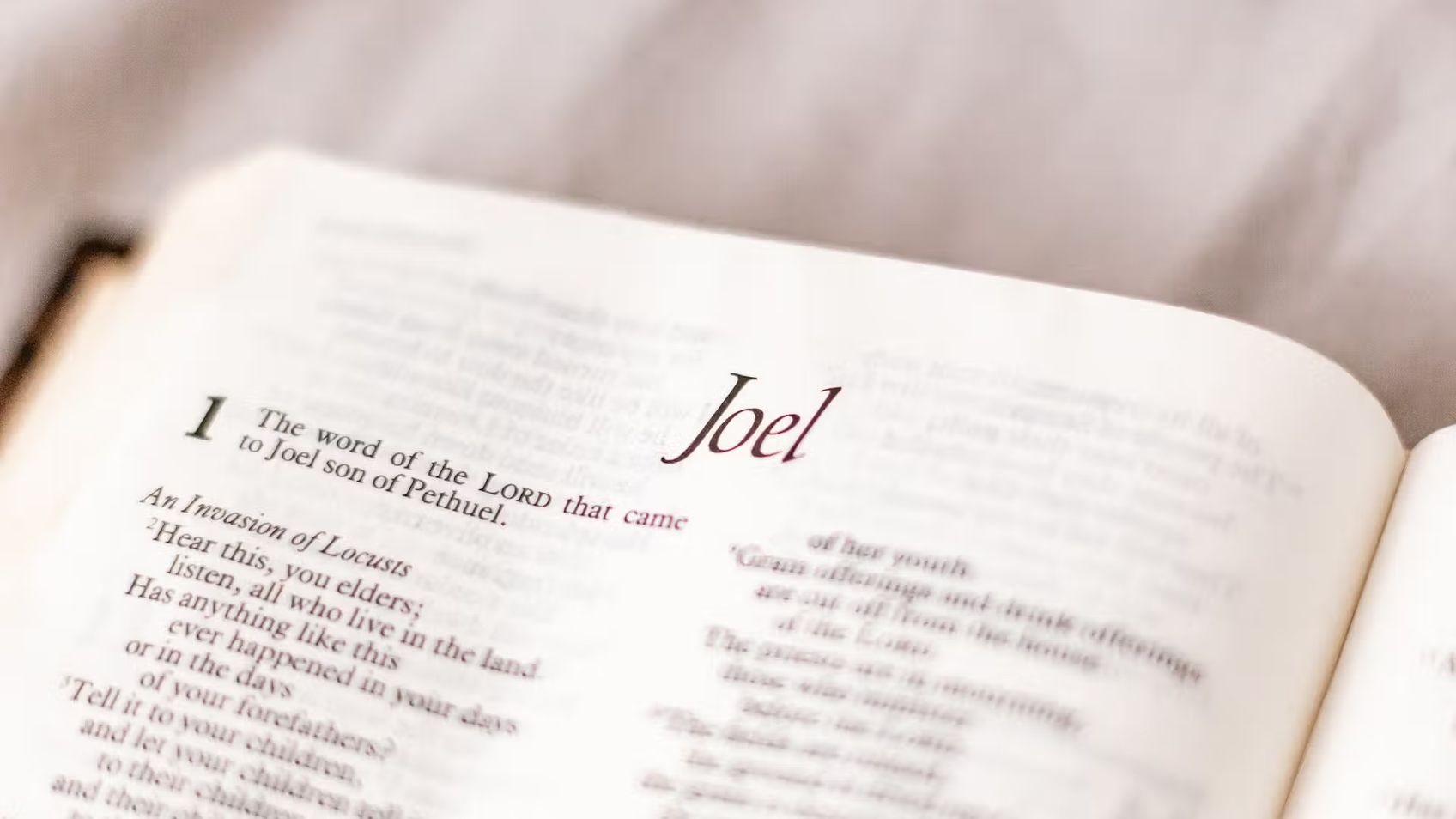Joel (Full Book)

JoelSteve Gregg
In this talk, Steve Gregg provides an in-depth analysis of the book of Joel in the Bible. He explores the meaning behind the day of the Lord and the various interpretations of the locust plague, as well as its significance in relation to God's judgment. Gregg also delves into the themes of sacrifice, restoration, and the role of the Holy Spirit in Joel, emphasizing the importance of seeking fulfillment in God rather than material possessions. Overall, his insights offer a thought-provoking and informative perspective on this often-overlooked book.
Series by Steve Gregg

Hebrews
Steve Gregg teaches verse by verse through the book of Hebrews, focusing on themes, warnings, the new covenant, judgment, faith, Jesus' authority, and

Genuinely Following Jesus
Steve Gregg's lecture series on discipleship emphasizes the importance of following Jesus and becoming more like Him in character and values. He highl

Knowing God
Knowing God by Steve Gregg is a 16-part series that delves into the dynamics of relationships with God, exploring the importance of walking with Him,

Lamentations
Unveiling the profound grief and consequences of Jerusalem's destruction, Steve Gregg examines the book of Lamentations in a two-part series, delving

Ezekiel
Discover the profound messages of the biblical book of Ezekiel as Steve Gregg provides insightful interpretations and analysis on its themes, propheti

1 Peter
Steve Gregg teaches verse by verse through the book of 1 Peter, delving into themes of salvation, regeneration, Christian motivation, and the role of

Authority of Scriptures
Steve Gregg teaches on the authority of the Scriptures.
The Narrow Path is the radio and internet ministry of Steve Gregg, a servant Bible teacher to

1 Corinthians
Steve Gregg provides a verse-by-verse exposition of 1 Corinthians, delving into themes such as love, spiritual gifts, holiness, and discipline within

Making Sense Out Of Suffering
In "Making Sense Out Of Suffering," Steve Gregg delves into the philosophical question of why a good sovereign God allows suffering in the world.

Evangelism
Evangelism by Steve Gregg is a 6-part series that delves into the essence of evangelism and its role in discipleship, exploring the biblical foundatio
More on OpenTheo

Sense, Sensibility, and Adam Smith with Jan Van Vliet
Life and Books and Everything
February 16, 2026
This year is a special anniversary for the United States as Americans celebrate 250 years of independence. But 1776 was an important year in more ways

Are Demon Possessions and Exorcisms in the New Testament Literal?
#STRask
December 11, 2025
Questions about whether references to demon possessions and exorcisms in the New Testament are literal, how to talk to young children about ghosts, an

Why Do We Say Someone Was Saved on a Particular Date If It Was Part of an Eternal Plan?
#STRask
November 24, 2025
Questions about why we say someone was saved on a particular date if it was part of an eternal plan, the Roman Catholic view of the gospel vs. the Bib

Does God Hear the Prayers of Non-Believers?
#STRask
February 26, 2026
Questions about whether or not God hears and answers the prayers of non-believers, and thoughts about a church sign that reads (as if from God), “Just

Why Are So Many Christians Condemning LGB People Just Because of How They Love?
#STRask
January 15, 2026
Questions about Christians condemning LGB people just because of how they love, how God can expect someone to be celibate when others are free to marr

Kingdom Priorities: Following the Teachings of Jesus
Knight & Rose Show
February 14, 2026
Wintery Knight and Desert Rose discuss Jesus' teachings from the Gospels, emphasizing truth, evidence, self-denial, and forgiveness. They explore pass

E. Calvin Beisner: Climate and Energy Policy
Knight & Rose Show
January 4, 2026
Wintery Knight and Desert Rose welcome Dr. E. Calvin Beisner to discuss climate and energy policy. They explore Biblical dominion and stewardship, con

What Is Wrong with Wokeness? With Neil Shenvi
Life and Books and Everything
January 19, 2026
In this timely interview, Kevin talks to Neil Shenvi about his new book (co-authored with Pat Sawyer), entitled “Post Woke: Asserting a Biblical Visio

What Are Some Good Ways to Start a Conversation About God with Family Members?
#STRask
October 30, 2025
Questions about how to start a conversation about God with non-Christian family members, how to keep from becoming emotional when discussing faith iss

Keri Ingraham: School Choice and Education Reform
Knight & Rose Show
January 24, 2026
Wintery Knight and guest host Bonnie welcome Dr. Keri Ingraham to discuss school choice and education reform. They discuss the public school monopoly'

What Do You Think About Churches Advertising on Social Media?
#STRask
January 19, 2026
Questions about whether there’s an issue with churches advertising on social media, whether it’s weird if we pray along with a YouTuber, and whether C

Lora Ries: Border Security and Immigration Policy
Knight & Rose Show
December 7, 2025
Wintery Knight and Desert Rose welcome Lora Ries to discuss border security and immigration policy. They explore Biden's policy changes, like ending R

Can You Provide Verifiable, Non-Religious Evidence That a Supernatural Jesus Existed?
#STRask
November 10, 2025
Question about providing verifiable, non-religious evidence that a supernatural Jesus existed.
* I am an atheist and militantly anti-god-belief. Ho

Does Open-Mindedness Require Studying Other Religions Before Becoming a Christian?
#STRask
February 9, 2026
Questions about the claim that if Christians really want to be open-minded, they need to read and study other religions before committing to Christian

The Making of the American Mind with Matthew Spalding
Life and Books and Everything
February 2, 2026
The United States is unique in how much attention it pays to its founding, its founders, and its founding documents. Arguably, the most famous and mos
